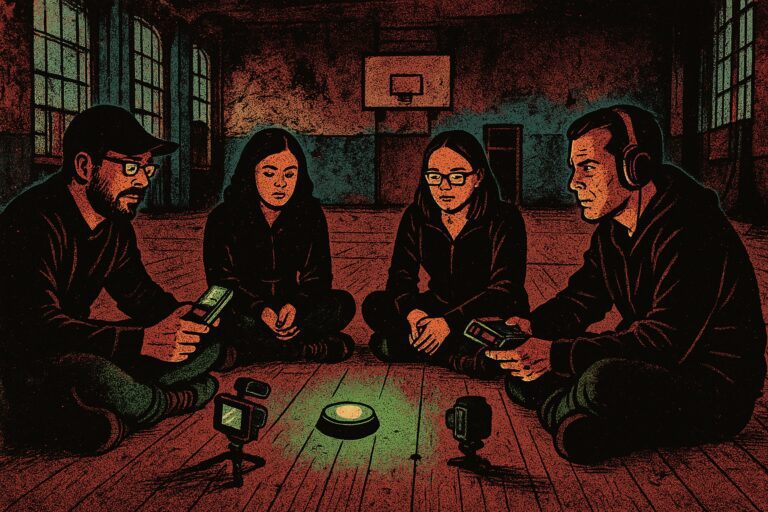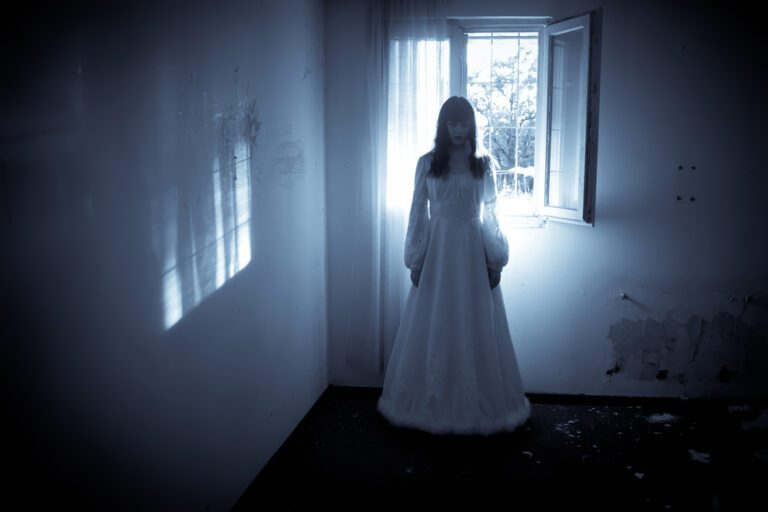Paranormal Research Manager Duties
Paranormal research managers have one of the hardest jobs on the team. They have to find why a place is haunted, and who the ghost was in life. Find out what it takes to be a research manager.
What makes a great paranormal research manager?
Patience, detective sense and determination. These two qualities will take you far as a researcher. You’ll need patience because you will run into many dead ends, and it may take months before your digging leads to a new opening. Detective sense is the ability to link hints/clues/leads to the haunting. Not everyone can take an intuitive leap and make associations between them. Last but not least, determination is critical. You have to be relentless following the clues your research uncovers. Remember, you are on the team to know why a place is haunted and who the ghost is. You cannot give up when it gets difficult: People want reasons why they’re haunted by something. You have to answer their questions.
Paranormal Research Manager Duties Explained
First off, I wrote about how we do paranormal research in an earlier post. This post covers resources you’ll use for your research. It’s not really a how-to procedural.
Now, you may confuse what a research manager does versus a paranormal investigator. This happens because many ghost hunters use paranormal researcher to describe themselves, when they’re really investigators. To simplify: Investigators find evidence of a ghost, while research managers find the why behind a haunting and who the ghost was in life.
Let’s discuss these duties below:
Historic Research
You need to find the events that lead to a haunting. That means you need to take look into the history of the place, the town and people who lived there. In many cases, you’ll need to use the town archives, local newspapers and libraries. Some towns will have a historic society with a historian. You need to use all of them to get the details on the suspected haunt.
Detective Work
With this skill, you need to think like a homicide detective. You need to look at your clues from your historic research and piece together why something would want to haunt a place. This is where you think about the intent of a possible person to come back from the dead. This is especially true if someone died at the site. Was there a murder? Was it a suicide? Was there a love triangle? A business deal gone bad? If you can answer these questions, you’re putting together a strong case for your team.
Genealogical Research
After your detective work, you want to look into the connections between people. Genealogical research will uncover who’s related to whom. In general, families tend to haunt their own families. However, you should expect gaps in records. You should also expect some dead ends in a lineage. In many older towns, families move away or they die out without heirs. You’ll probably find some ghosts haunt a family plot that they haven’t owned in over 100 years.
Title Research
This is just a fancy way to know the historic ownership of a property. You can get a lot of recent history from Zillow, Redfin and other real estate sites. If your genealogical records hit a dead-end, look into ownership records. Then take those names and start your genealogical research over. I’ll list a great online resource for title research under Further Readings at the end of the post.
Occult Knowledge
This also applies to paranormal investigators. Sometimes, you’ll uncover symbols, sigils and really weird stuff as you follow leads. You need to figure out what it means. I know this is a broad topic. If you can, talk to an occultist in your area or start a library. Most of these (e)books are available on Amazon. You could also ask your library to help.
Geological Research
Sometimes, the earth holds the secret to a haunting. You don’t need to be a geophysicist for this type of research. You can use an atlas that has soil, rocks and water systems to find if they helped store ghostly energy. Certain rocks, like limestone, can store ghostly energy as can water. If you ever have a suspected haunt in an area with limestone and an underground river, you’ve probably got a strong haunting. See our post about the Bucks County haunting as an example.
What does a research manager do on a ghost hunt?
Not much. Really, you’ll probably get roped in during the data analysis part of the investigation. As the analysts find EVPs and apparitions, they’ll ask you if you recognize the names or ghost’s appearance from your research. EVPs are a great way to link the haunting to a potential human. Many ghosts will say their names, so you can confirm their identities. For apparitions, it could be more difficult. Ghost hunters rarely get detailed pics. In most cases, it’ll be an ill-defined silhouette. If it has what looks like a hat, you may be able to use that to link to someone’s photo you found.
Of course, research managers can also moonlight as investigators (as I do). Researcher-Investigator combos are very useful members to have around.
Research Manager Advice
Start a library
You will always need to look something up, so it’s nice to have a resource at your fingertips. Most ghost research books are inexpensive (less than $20) and ebooks are even cheaper. I recommend all the local haunting books (like ‘The Ghost Hunter’s Guide to Seattle”), occult books, magic books, psychic phenomena books and ghost hunting books in general. I’ve got a library with more than 100 books and it’s very helpful when researching a haunt and ghost. If your team has some extra cash, see if they’ll invest in some books.
Subscribe to your local newspaper’s archives
I was able to name the ghost of a little boy from the Chicago Tribune archives. Newspapers are great resources for your research. They’ve got all the names and tragic history for your town in one spot. It’s usually a cheap subscription or it has a free trial.
Don’t be afraid of your librarian
At some point, you’ll need to look at something in the library. Many new researchers are nervous when they ask for paranormal topics. Don’t be. Librarians have heard all sorts of crazy information requests. If you’re still uneasy, just say you have a research paper about violent crimes in the area. And one more thing–give your librarian 3 days to get the stuff together for you. Many librarians won’t let you roam the basement looking for stuff. Ask ahead of time. Really, they’re more than happy to help.
Don’t get discouraged if you don’t get to investigate
Junior team members don’t get to participate in the live hunt. If you’re new to the team, just be patient. Your time will come. However, I know a few research managers who never want to go on the ghost hunt. They think it’s a letdown when the investigator doesn’t get anything. If you want to hunt, tell the lead investigator. To me, research managers always deserve a spot in the ghost hunt lineup. Lead investigators will usually let you come along and help out.
Don’t get upset if you get it wrong
With so many gaps in records, you’ll probably have to make a lot of educated guesses. As with any guess, you’re going to get it wrong at some point. Don’t beat yourself up about it. All scientists go through it, too. Their hypothesis doesn’t work out, so they start over with a new one. So should you.
Further Readings
Haunted Places: The National Directory
Ghost Hunters Research Guide To Free Internet Resources
The New Encyclopedia of the Occult







Hi gang. I just realized I may muddle this role with a paranormal researcher. A paranormal research manager works on ghost hunts and find historic and archival evidence for a case. A paranormal researcher is a scientist/academic that tries to prove ghosts exists. I’ve got a post that hopefully clarifies it: https://www.ghostlyactivities.com/the-differences-between-a-ghost-hunter-paranormal-researcher/